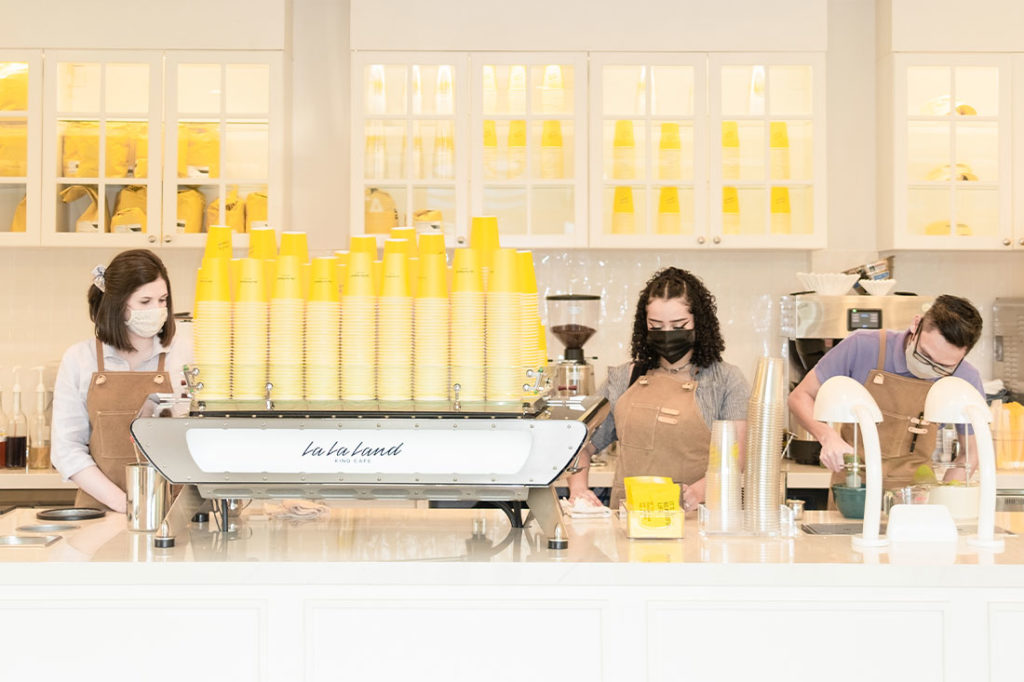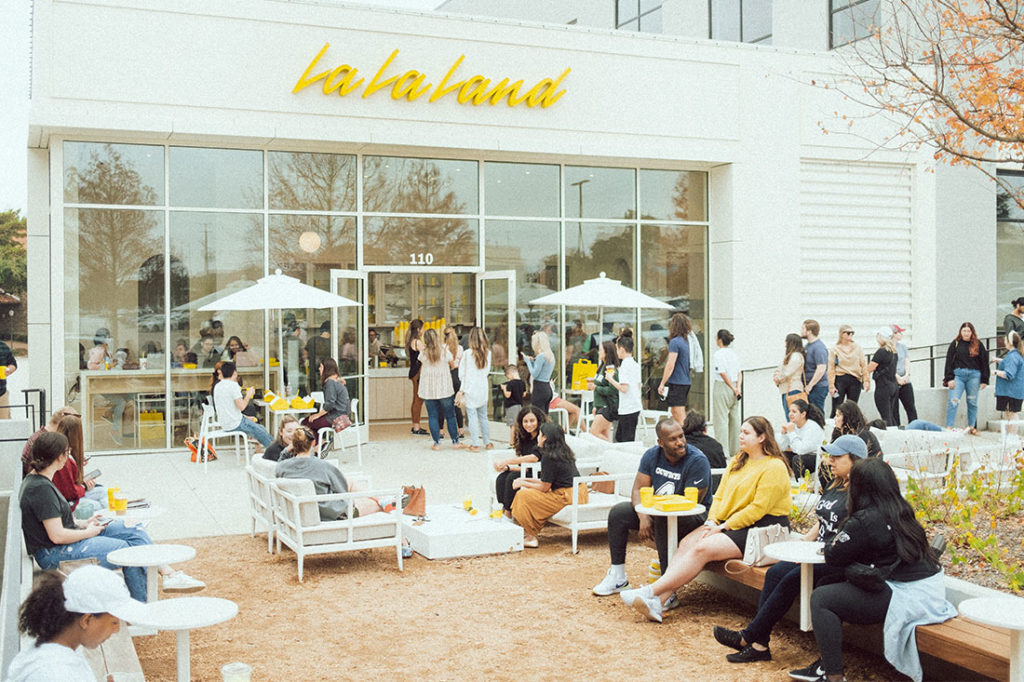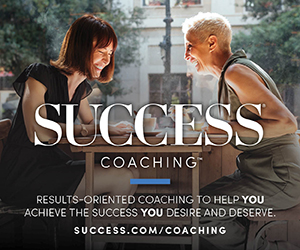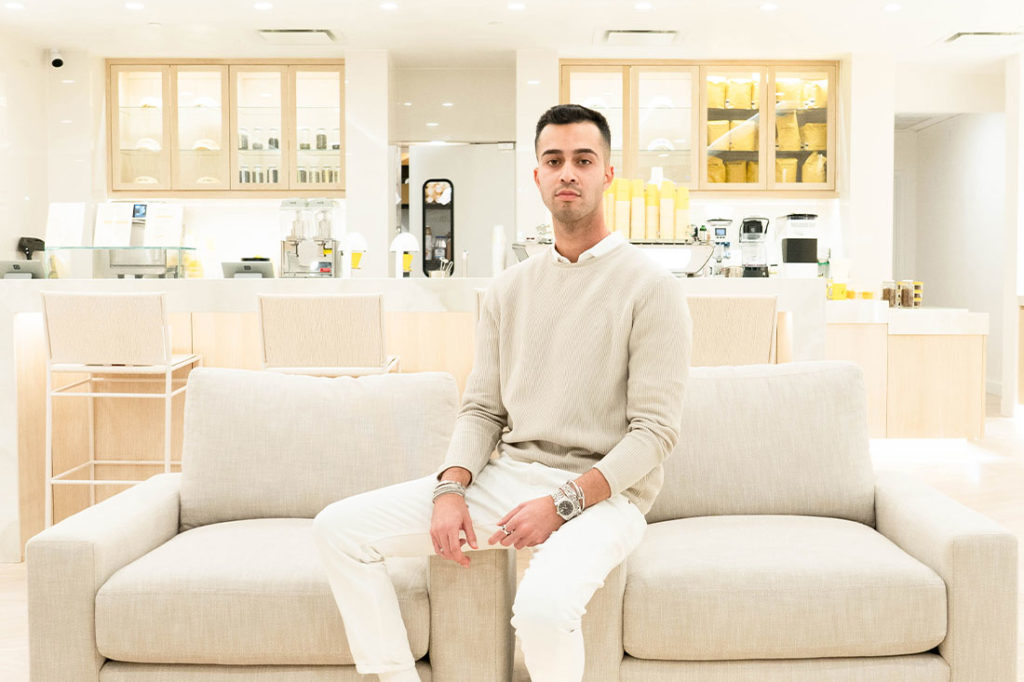Editor’s Note: The SUCCESS Interview tests the foundational principles of this 125-year-old personal and professional development magazine against modern realities. Our staff sits down with newsmakers, opinion-shapers and undisputed achievers to find out how we can all thrive in a world changing faster than ever.
In this edition, Madison Pieper spoke with Francois Reihani, founder and CEO of La La Land Kind Cafe, a Dallas-based restaurant that empowers youth who have aged out of the foster care system through employment and mentorship opportunities. Reihani also launched the We Are One project with the aligned goal of helping foster care system youths.
This Q&A has been edited for space and clarity. To view the interview in its entirety, join our Achievers All-Access platform, which gives you access to hundreds of interviews, courses and expert trainings to help you level up in life and business. Visit achieversallaccess.com to learn more.
* * *
SUCCESS Magazine: Today we bring in Francois Reihani, who started a business at just 21 years old. Now, he has another multimillion-dollar business, but it comes with a purpose—a purpose to be kind. Francois, thank you for joining us here today at SUCCESS. We’re so excited to have you.
Francois Reihani: Thank you for having me.
SM: You started your journey to entrepreneurship at 21. What was the response from friends and family for starting so young?
FR: Definitely at the beginning while we were still in college, I don’t think people really believed it was possible, especially not having experience in the industry I was going into. I still get that at this point.
SM: So you started a poke restaurant. Since then, you’ve jumped into La La Land Kind Cafe, which is more than just a café. Tell us about that.
FR: When I started the poke place, I think at that point, my whole life was really about making a bunch of money and that’s what I grew up wanting to do, as a lot of entrepreneurs do. And I think once that started to happen, I started to think, What am I really doing with my life? And that scenario kind of led me into wanting to find something more fulfilling.
And so I learned about Dallas CASA [a nonprofit dedicated to advocating for neglected and abused children and helping them find healthy and stable homes]. That taught me a lot about the foster youth industry. Three kids that came in told their stories about aging out of foster care, which I had no idea what that even was at that time. Once I heard their stories, I went home and started researching. The more you look into it, the worse it gets. It’s a deep and dark hole. It makes you want to help because these are kids who have really never had a shot. They have no help. And when they turn 18, they have no one.

That changed the trajectory for my career. I sold my hospitality business to focus on my nonprofit, the We Are One project. The goal was to help kids who are aging out of foster care and give them everything they possibly needed to become successful and happy adults. But the more we tried to do that with therapy and housing and job placement and schooling, the more dead ends we hit. Because even with all those things, most of our youth couldn’t get or maintain a job. And you can’t be a self-sustaining adult without a career.
Out of that problem came La La Land. I wanted to create a place where not only we could mentor and hire the foster youth that were aging out of foster care, but at the same time build a platform that we can share with other businesses to be able to do the same.
SM: There’s a sense of community and family there.
FR: Oh yeah, absolutely. We try to cultivate that. It comes with the design and the feeling and the living room type settings. Our teams are hired to spread kindness, not just to serve coffee. And that does create a different environment.
SM: So you have a special connection with fostered youth, not only because of your experience with CASA, but because of where you grew up and what you saw in the first half of your life. Tell us a little bit about that and how it led to where you are today.
FR: Right after I was born, we moved to Mexico. And growing up in Rosarito, walking on your way to school, you see dozens and dozens of homeless kids with either their parents or alone, trying to sell gum or candy or something to basically make it by. And when you’re growing up at that same age, you’re thinking, I’m going home with my parents and they’re having to stay out here. When you move to America, you just don’t see that anymore. So I didn’t think it was a problem here. When I heard more about it, it brought back those memories. Now, as an adult, I’m actually able to do something about it.
SM: You’ve made such a huge impact in this foster community. How has this journey felt for you?
FR: I’ll start by saying our program is nowhere near perfect. We’ve had a lot of failure in trying to figure out how to make this work. These kids have been through a lot, and it’s not a simple solution. But of course, thank God, we’ve had the times where we’ve seen a massive impact in the youths’ lives. And for a youth to actually be able to see that, “Hey, you’re worth a lot and you’ve got great skills, and you’re a great human being and you do have big potential and a big future.” And being able to see that in some of these youths who might not have seen it before, and to be able to give them that community and support system to get there, has been one of the most rewarding things in my life. And now we’re hoping to be able to scale what we’re doing to help even more [foster youth].

SM: The idea of leading with purpose sounds nice, but it isn’t always easy. What advice would you give to entrepreneur hopefuls?
FR: First, when you don’t concentrate on the money and you just have the good intention of doing the right thing, money comes. I think that’s proven in my career. I’ve still yet to dig deeply into a financial statement to try to increase profit margins. Somehow stuff just flows. Our motto is, “When you do the right thing, magic happens.”
As young entrepreneurs, we don’t want to listen to people who say, “Hey, money doesn’t truly make you happy.” You hear it time and time again, but it’s a lesson you often have to learn on your own. To a certain extent, money can bring joy and excitement. I like nice things, and that wouldn’t be possible without money. But it doesn’t bring fulfillment and it doesn’t bring happiness. Try to understand how you can blend both in your life.
SM: This is something we ask everyone because it helps our readers understand and potentially replicate that which makes an entrepreneur successful. So, this being SUCCESS after all, what are your top three habits for success?
FR: No. 1: I think it truly is a relentless work ethic to want to be the best. That’s probably the top thing that I say to any of our team members every day. It’s not easy. A lot of times it’s seven days a week and it’s 16-hour days and you’re consistently going and you’re not seeing your friends and you’re not taking vacations. But if you want to achieve success, it’s never a simple thing.
No. 2: Do the right thing. I think my success, 99% of it, has to do with that. Just truly [get something] on the board, you don’t need to make it complicated. Just do the right thing. And at the end of the day, the right thing isn’t always the best financial decision in the world or the best operational decision in the world, but it does at the end of the day pan out. I am just a massive, true believer in karma.
And the last thing I would say would probably be to be kind. That would wrap it up for you. And it’s generally such a simple thing to do as human beings to just wake up in the morning with the actual intent that I’m going to be a kind person today.
This article originally appeared in the May/June 2022 Issue of SUCCESS magazine. Photos courtesy of Francois Reihani and La La Land Kind Cafe.



